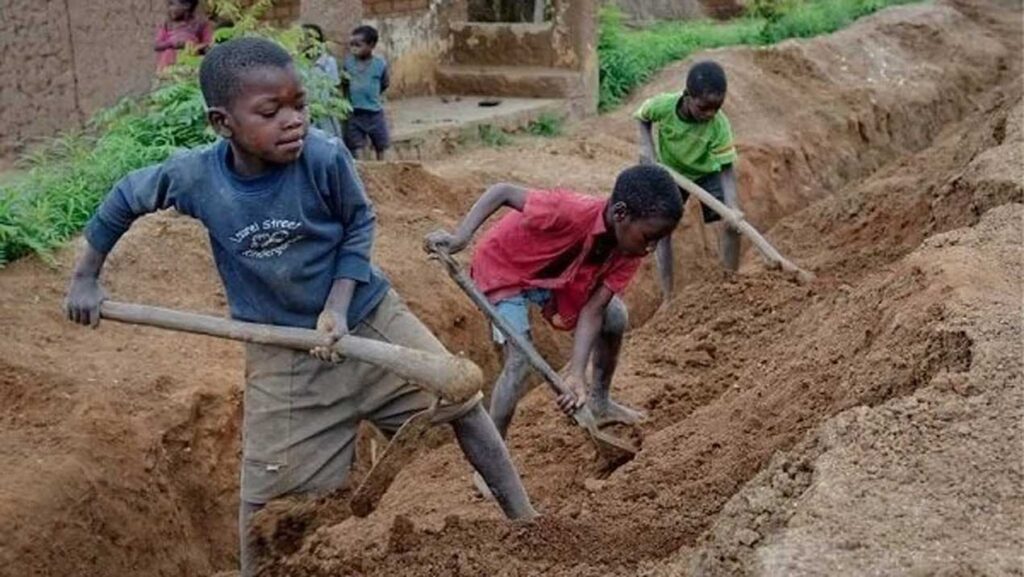
Children forced into child labour in Lagos and Nasarawa states work the longest hours, according to a report by the National Bureau of Statistics (NBS) and the International Labour Organisation (ILO).
The report said that children between the ages of five to 17 years old work for an average of 25.6 and 24.3 hours weekly.
The survey conducted in 2022 found that over 31.8 million Nigerian children aged five to 17 are involved in some form of economic activity, often referred to as child labour.
According to the ILO, child labour refers to work that deprives any children under 18 of their childhood, their potential and their dignity, and that is harmful to their physical and/or mental development.
While 24.7 million children (39.2%) are involved in child labour, over 14 million children (22.9%) aged five to 17 years old are engaged in hazardous work.
“A focus on hazardous work by age makes clear that older children are more likely to be engaged in such work, as 37.3per cent of children in the 15–17 age group are involved in hazardous work compared to 29.0 per cent of children in the 12–14 age group and 15.8 per cent in the 5–11 age group,” NBS said.
An analysis across regions shows that the North-West geopolitical zone has the highest number of children in child labour (6,407,102) and in hazardous work (3,266,728).
A look at the working hours of children in child labour by gender reveals that boys work on average 2.4 hours more than girls, who work for 15.8 hours per week versus 13.4 hours per week.
The data also shows that children in child labour who are qualified for employment work the most hours, with an average of 16.3 hours per week, while older children in employment, those aged 15-17, work a much higher average of 22.2 hours per week than children aged 5–14, who work an average of 13.4 hours per week.
“Children in child labour involved in unpaid trainee work spend on average 13.9 hours per week in that work, while children in child labour involved in own-use production spend on average 8.9 hours in that activity per week,” NBS noted.
“For children in child labour involved in the form of work qualified as employment, important differences in the time they spend working by branch of economic activity and status in employment can be observed.”
According to the data, employed children in child labour spend an average of 23.2 hours per week working in industry, 22.5 hours in the service sector, and 18.9 hours in agriculture.
The average number of hours these children work per week varies according to their employment status.
While employed children in child labour who are employees and own-account workers spend an average of 23.4 and 25.6 hours in employment per week, respectively, children in the other category and those employed as contributing family workers spend an average of 18.5 and 18.0 hours weekly, respectively.
The finding from this latest survey is that it is prohibited under Nigeria’s Child’s Rights Act (2003).
The law states that no child shall be subjected to any forced or exploitative labour; or employed to work in any capacity except where he is employed by a member of his family on light work of an agricultural, horticultural or domestic character; or required, in any case, to lift, carry or move anything so heavy as to be likely to adversely affect his physical, mental, spiritual, moral or social development; or employed as a domestic help outside his own home or family environment.
The law also states that no child shall be employed or work in an industrial undertaking and nothing in this
subsection shall apply to work done by children in technical schools or similar approved institutions if the work is supervised by the appropriate authority.
Violating the Child Rights Act is liable to conviction, a fine of N50,000, imprisonment for a term of five years or both.













